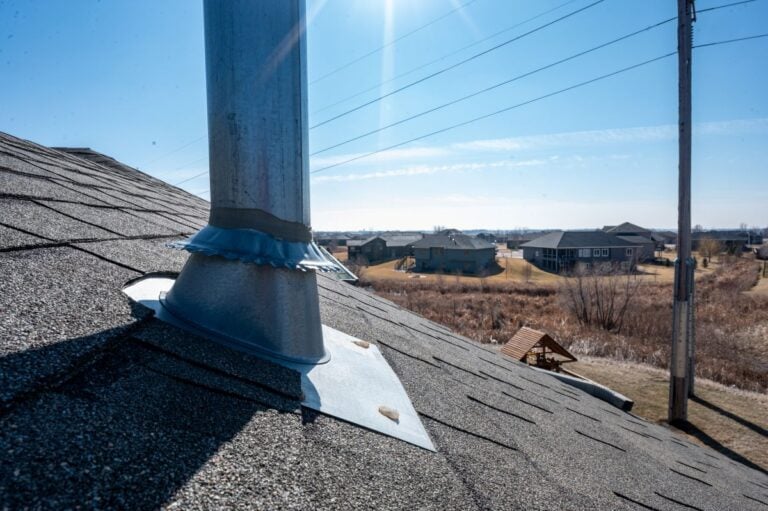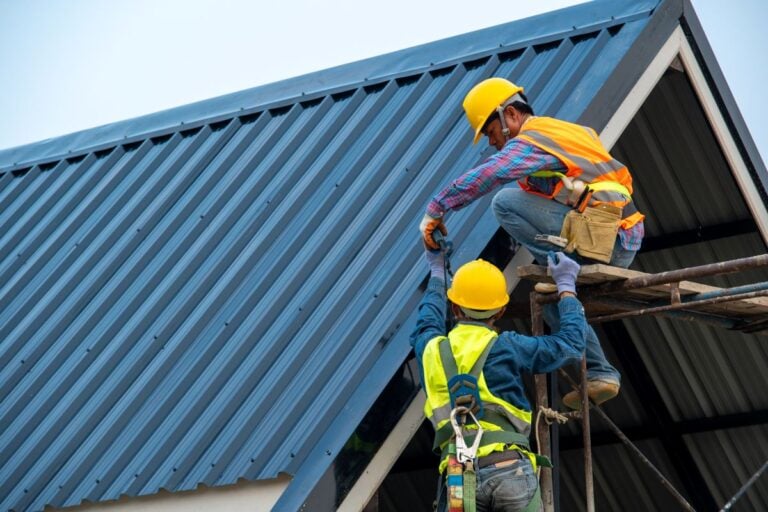If you’re a business owner looking for a reliable and durable roofing solution, you’ve probably heard of a “modified bitumen roof.” Known for its durability, weather resistance, and long lifespan, it’s a top choice for commercial buildings. But how do you know if it’s the right fit for your needs? In this blog, we’ll break down what a modified bitumen roof is, its key benefits, and factors to consider before making your decision. Let’s dive in!
- What a modified bitumen roof is and how it works
- The pros and cons of modified bitumen roofing
- Applications of modified bitumen roofs
🤔 What Is a Modified Bitumen Roof?

A modified bitumen roof (often referred to as “mod bit”) is a roofing system designed for low-slope (flat) roofs, commonly found on commercial buildings. It’s made by blending traditional asphalt with polymerized materials, which enhances the durability and flexibility of the roof. This ingenious combination creates a surface that can withstand tough weather conditions while offering long-lasting protection for your building.
Modified bitumen roofs are typically applied in layers, making them a robust and reliable option compared to single-layer roofing systems. They often involve a “roof membrane” reinforced with fiberglass or polyester for added strength.
Why Choose Modified Bitumen Roofing?
Modified bitumen roofing has become a go-to solution for business owners looking to invest in flat or low-slope roofing systems. Here are a few compelling reasons why mod bit is worth considering:
- Longevity – A properly installed modified bitumen roof can last up to 20 years or more with regular maintenance.
- Weather Resistance – These roofs are built to withstand extreme weather conditions, including harsh heat, heavy rain, and high winds.
- Energy Efficiency – Many mod bit roofs are available with reflective coatings that help manage heat, potentially reducing cooling costs.
- Tear Resistance – The addition of reinforcements, like fiberglass, makes modified bitumen resilient to foot traffic and equipment placement.
🏢 6 Pros & Cons of Modified Bitumen Roofing

Understanding the pros and cons of modified bitumen roofing is crucial for making informed decisions about your building’s durability, cost, and energy efficiency. This guide will help you weigh the benefits and drawbacks to see if it’s the right choice for your needs.
1. Pro: Durability
Modified bitumen roofing is designed to withstand even the toughest weather conditions, making it one of the most durable roofing systems available. Whether it’s hail that can dent or damage other materials, heavy rain that leads to leaks in weaker systems, or constant sun exposure that can cause cracking or degradation, modified bitumen holds up exceptionally well. Its reinforced layers and robust structure ensure it performs consistently over time. This durability makes it a go-to option for commercial properties, especially in regions that experience weather extremes such as scorching summers or freezing winters. Business owners can rest assured knowing their roof is built to last, reducing the likelihood of costly repairs or replacements.
2. Con: Maintenance Needs
While modified bitumen roofs boast impressive durability, they aren’t entirely maintenance-free. Regular inspections are essential to identify any signs of wear and tear early, such as small cracks, membrane separation, or damage caused by debris. Routine cleaning to remove dirt and debris will also help extend the roof’s lifespan and prevent water pooling, which can lead to leaks. Additionally, reapplying protective coatings every few years may be necessary to ensure optimal performance. Neglecting these maintenance tasks can lead to minor issues escalating into major problems, such as water damage or structural instability. While the upkeep isn’t overly burdensome, it does require consistent attention to keep the roof in peak condition.
3. Pro: Flexibility
One of the standout advantages of modified bitumen roofing is its flexibility, which is largely thanks to the polymer modifiers integrated into the material. Unlike traditional asphalt roofing that can become brittle and crack over time, modified bitumen adapts well to temperature fluctuations. In climates where temperatures swing dramatically between hot and cold, this feature is particularly valuable. Its flexibility allows the material to expand and contract without breaking or losing integrity, ensuring it can endure years of use without compromising its effectiveness. This adaptability to environmental stressors makes it a reliable and long-lasting choice for properties in diverse climates or challenging conditions.
4. Con: Weight
While modified bitumen roofing is incredibly durable, this strength comes at a cost: weight. Compared to lightweight options like single-ply membranes, modified bitumen roofs are significantly heavier. This added weight can pose challenges during installation, particularly for larger buildings or structures with older frameworks. Before installation, an assessment may be required to determine if the building can support the added weight, and in some cases, structural reinforcements might be necessary. These reinforcements can increase both the time and cost of the project. For properties with specific weight limitations, alternative roofing options may be more practical, but the durability of modified bitumen often justifies these additional considerations.
5. Pro: Water Resistance
One of the reasons businesses opt for modified bitumen roofing is its exceptional water resistance. When installed correctly, the material forms a seamless, watertight barrier that effectively prevents leaks and protects the building from water damage. This is especially important for commercial properties in areas prone to heavy rainfall or snowstorms. Its multi-layer construction and overlapping seams provide an extra level of security against moisture penetration. Combined with regular maintenance, this roofing system can protect the structural integrity of the building, reducing the risk of costly repairs from water intrusion. For property owners looking for peace of mind during harsh weather, this feature is a significant advantage.
6. Con: Limited Aesthetic Options
While modified bitumen roofing excels in practicality, it falls short when it comes to aesthetics. The material is generally available in basic colors and designs that prioritize function over visual appeal. This can be a drawback for businesses that place a high value on the exterior appearance of their property, especially those in industries where curb appeal plays a significant role, such as retail or hospitality. Unlike other roofing materials like metal or architectural shingles, which offer a wider range of styles and finishes, modified bitumen options are often limited and utilitarian. For businesses prioritizing a polished, visually distinctive look, this lack of design flexibility may be a dealbreaker. However, for those more concerned with performance and longevity, the trade-off may be worth it.
🔎 Applications of Modified Bitumen Roofs

Modified bitumen roofs are essential for their durability and weather resistance, making them a reliable choice for both commercial and residential buildings. Their flexibility and strength ensure long-lasting protection against harsh environmental conditions.
Low-Slope or Flat Roofs
Modified bitumen roofing is specifically engineered for buildings with low-slope or flat roofs, making it a top choice for commercial properties. Its ability to withstand water pooling and harsh weather ensures reliable protection. Whether you own a warehouse, retail store, or office building, this roofing solution provides the durability and weather resistance needed for long-term performance.
Industrial Facilities
Industrial facilities with heavy machinery or rooftop equipment placements demand durable roofing solutions. Modified bitumen roofs excel in these environments with their exceptional tear resistance and ability to handle heavy loads, ensuring the roof withstands wear and tear over time while maintaining its structural integrity.
Multi-Tenant Buildings
For property managers handling rental spaces, modified bitumen offers peace of mind with its low maintenance requirements and extended lifespan. Its cost-effective nature means fewer repairs and less hassle, making it an ideal choice for apartment complexes, condos, or other multi-tenant properties.
Eco-Friendly Add-Ons
Many business owners are now choosing eco-friendly upgrades for their modified bitumen roofs, such as reflective coatings. These coatings bounce solar heat away from the building, helping to keep interiors cooler and reducing energy costs. By improving energy efficiency, businesses can lower their carbon footprint while enjoying long-term savings.
⭐️ Explaining Bitumen Roofing
At Palladium Roofing, we understand that your commercial roof is an investment in the safety and longevity of your business. With our certified expertise, commitment to transparency, and use of premium materials, we deliver roofing solutions you can count on for years to come.
Whether you’re in need of a modified bitumen roof or another advanced roofing system, our team is here to provide tailored services that meet your unique needs. Trust Palladium Roofing to get the job done right the first time. Ready to protect your business with a reliable roofing solution? Contact us today for a free consultation!





